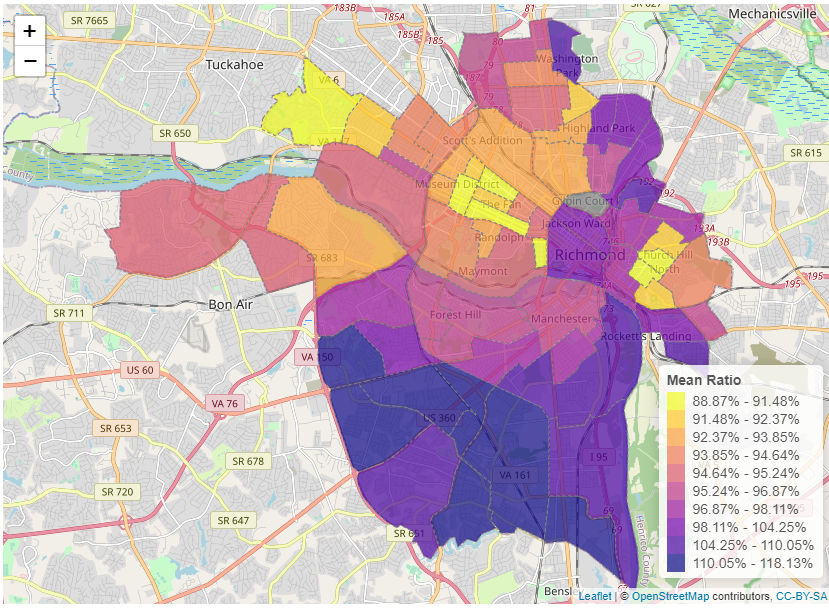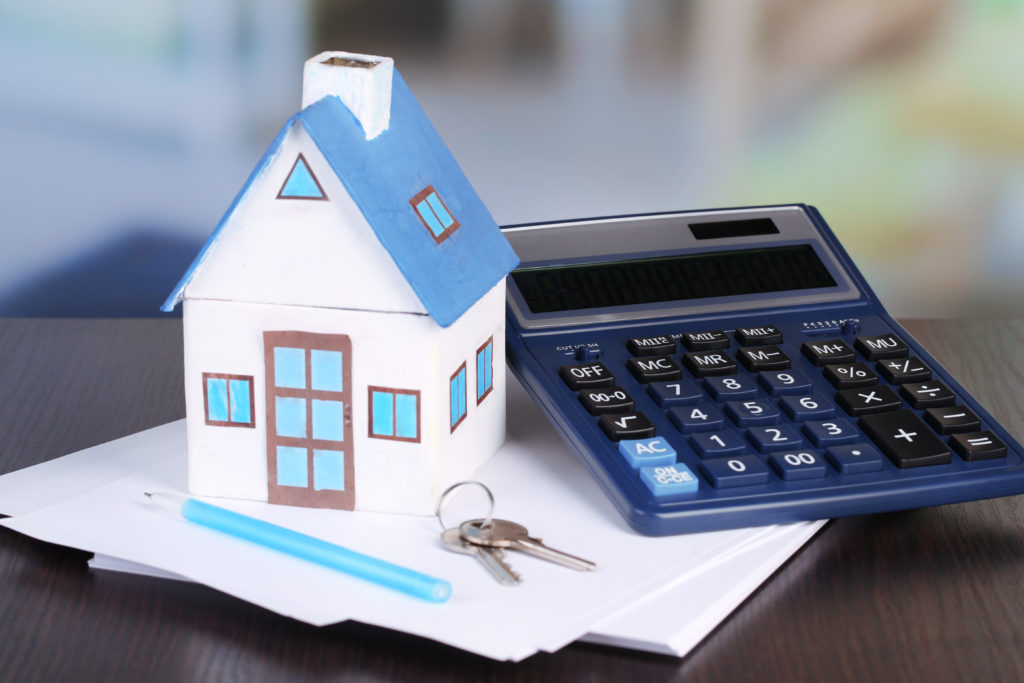The FWD #176 • 584 Words
Assessed property values are rising across the board, but it may be having disparate impacts.
Property tax has always been a contentious issue. Conflicting attitudes towards the Commonwealth’s approach to this issue have persisted across Virginia’s political and economic evolution into today’s housing market. Recent news and research on property tax assessments raises questions: What are the impacts upon affordable housing and racial equity, and how could this issue affect Virginia’s housing market in the future?
Last month, the Richmond Times-Dispatch reported on the region’s rising property assessments. On average, property values increased by 12.4% in Chesterfield, 11.2% in Richmond, and 10.6% in Henrico. The City Assessor says a lack of supply and rising rents have contributed to this increase in housing costs, with the current vacancy rate around 1% (compared to the 15-20% average vacancy rate).
While the cost burden has risen for homeowners across the region, older homeowners and homeowners of color are often unevenly impacted by assessment disparities. Research by University of Chicago’s Harris School of Public Policy made headlines last year with its finding that homes in lower-income neighborhoods are being overassessed and higher-income ones underassessed in counties all over the nation.
This methodology found that in Richmond, 82% of the lowest value homes are overassessed, and the average sales ratio (a way of measuring the accuracy of a property’s assessed value when compared to the property’s selling price) was significantly higher in majority-minority neighborhoods of the city. In this way, tax burden can contribute to the existing racial wealth gap, an issue we cover in more detail in the upcoming release of our Racial Equity Toolkit.

In addition to the racially disparate impacts tax assessments can have upon single-family homeowners, the assessments of subsidized rentals have impacts upon efforts to keep them affordable. As described in the HB854 Statewide Housing Study, although current state code directs local assessors to account for rent restrictions in some types of affordable rental housing, providers must often appeal incorrect valuations, leading to sunk costs. Overall, real estate taxes in Virginia often average five to ten percent of an affordable housing property’s expenses. This can translate to roughly one month’s rent for tenants, increasing financial burdens in an already strained market.
One affordable rental provider interviewed for HB854 testified they spend about 100 hours each year on appeals and hearings just to get their properties correctly valued by localities.
Determining housing price trends and appropriate comparable sales is challenging in any environment, particularly in certain booming housing markets in the Commonwealth. Still, a fundamental problem is the way that assessed values are often determined. Unlike real estate appraisers, who examine a house inside and out before it’s sold or mortgaged, assessors don’t have the resources to look at each property individually and instead often cluster units into market segments, without consideration of actual rents collected. The Partnership for Housing Affordability recently presented this issue to the City of Richmond’s Land Use, Housing and Transportation Committee, proposing local changes to assessment methods and increased exemptions for affordable housing.
Without new action, challenges within tax assessments may continue to challenge below-market housing and homeowners of color.
